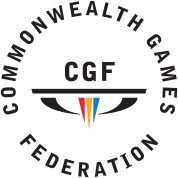
Australia has been doing exceptionally well at the 2018 Commonwealth Games, held at the Gold Coast, Queensland. We can be very proud of our athletes, not only for their sporting prowess, but also because of their friendly demeanour and wonderful examples of the spirit of sportsmanship. I’m sure we all felt proud when the Australian team waited 4 minutes on the track for the last runner, representing Lesotho, to finish the 10,000 m, after all the other athletes had left the track. Our team was at the finish line to congratulate their fellow athlete, Lineo Chaka, from the extremely poor, small African nation in the mountains of Southern Africa (it can be a good exercise in geography for students to locate Lesotho on a world map or globe). With a per capita GDP of only $2,450 (compared to Australia’s rate of almost $50,000) this tiny nation has almost no money to spend on sporting facilities or training for athletes. The challenges overcome by Lineo Chaka just to be present at the Games would have been enormous and it was a fitting acknowledgement of her efforts for the Aussies to be there to congratulate her at the finish. It is these moments that remind us what the true spirit of these Games should be about. Well done to all!
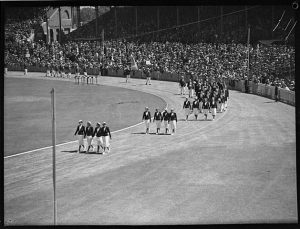
The Commonwealth Games began as the British Empire Games in the early 20th century. The idea for a games competition for members of the British Empire was first proposed by John Astley Cooper in 1891 in an article in The Times newspaper. Committees were formed in many places around the world (including Australia) and these committees actually helped with the organisation of the first Olympic Games as well. In 1911 a Festival of the Empire was held at Crystal Palace in London, and athletics, boxing, wrestling and swimming events were also held. The Australian Harold Hardwick was undefeated in both the boxing and the swimming. Australia had become a Federation by then and proudly exhibited a 3/4 size scale model of Melbourne’s Parliament House at Crystal Palace. However, the first British Empire Games were not until 1930. They were held in Hamilton, Ontario, Canada. Australia was amongst the 11 teams competing in these games and won 8 medals, of which 3 were gold. England won the most medals that year, with 61, of which 25 were gold; followed by Canada, South Africa, New Zealand and then Australia. Scotland, Wales, British Guiana, Ireland, Bermuda and Newfoundland also competed.
The second British Empire Games were held in London in 1934 and the third in Sydney, Australia in 1938. They were timed to coincide with Sydney’s sesqui-centenary, celebrating 150 years since the First Fleet had arrived. Fifteen nations competed at the Sydney Cricket Ground in eight sports – athletics, boxing, cycling, lawn bowls, rowing, swimming, diving and wrestling. Australia won 66 medals, 25 of them gold, more than any other nation in the competition. War delayed the next Empire Games until 1950. These were held in Auckland, New Zealand.
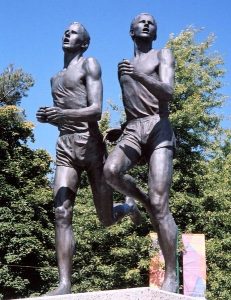
By 1954 the name had started to change with the British Empire and Commonwealth Games being held in Vancouver, Canada. In those games, John Landy of Australia joined Roger Bannister of England in running a mile in less than 4 minutes, earning the race the title of the “Miracle Mile”. The event was also televised for the first time. In 1970 the games were called the British Commonwealth Games (the days of empire being truly over by then) and in 1978 they became known as just the Commonwealth Games, the name they retain today. In 1982 the Commonwealth Games were back in Australia, this time in Brisbane, Queensland and the opening event featured a giant model of a kangaroo. Forty-six nations competed and again, Australia topped the medal tally. The Commonwealth Games were back in Aus in 2006 in Melbourne, making Australia the country which has hosted the games the most number of times (5 times in all).
Today (15 April 2018) marks the closing of the Commonwealth Games at the Gold Coast, which started with the arrival of the Queen’s Baton Relay at the Opening Ceremony on 4 April, 2018, having covered 230,000 km through Africa, the Americas, the Caribbean, Europe, Asia and Oceania in 388 days, the longest Queen’s Baton Relay so far. The 2018 Queen’s Baton is made from macadamia wood and recycled plastic sourced from the Gold Coast waterways. Australia has done extremely well, remaining at the top of the medal table.
It has also been wonderful to see the events for para-athletes taking place interspersed with the regular events, which has occurred since 2002. This means that para-athletes are part of the same teams and are cheered by the same crowds, giving them far more support than in segregated games. We salute all of the athletes for their hard work, dedication, wonderful spirit and sportsmanship and look forward to supporting them again in the future.

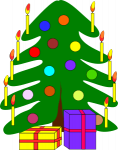
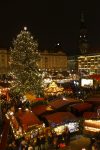 a resource covering the occasions we celebrate here in Australia
a resource covering the occasions we celebrate here in Australia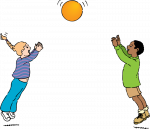 Games from the Past
Games from the Past
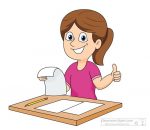 OpenSTEM would like to extend warm congratulations to all teachers on Teachers’ Day!! We salute you all for the wonderful job you do for all students every day, often without thanks or praise. It is not lightly that people say “If you can read this, thank a teacher”. Teachers truly are the force that shapes the future and can set people on a positive track for life. Your influence is lifelong and all-encompassing.
OpenSTEM would like to extend warm congratulations to all teachers on Teachers’ Day!! We salute you all for the wonderful job you do for all students every day, often without thanks or praise. It is not lightly that people say “If you can read this, thank a teacher”. Teachers truly are the force that shapes the future and can set people on a positive track for life. Your influence is lifelong and all-encompassing.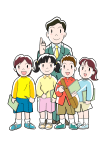 Well done to you all and we hope you all have a well-deserved rest this weekend! Keep being awesome and know that you are deeply and warmly appreciated by students, parents and all clear-thinking people in society.
Well done to you all and we hope you all have a well-deserved rest this weekend! Keep being awesome and know that you are deeply and warmly appreciated by students, parents and all clear-thinking people in society.

The program reduces my planning time as I only have to plan and research for one integrated unit.
Trent Perry, Teacher